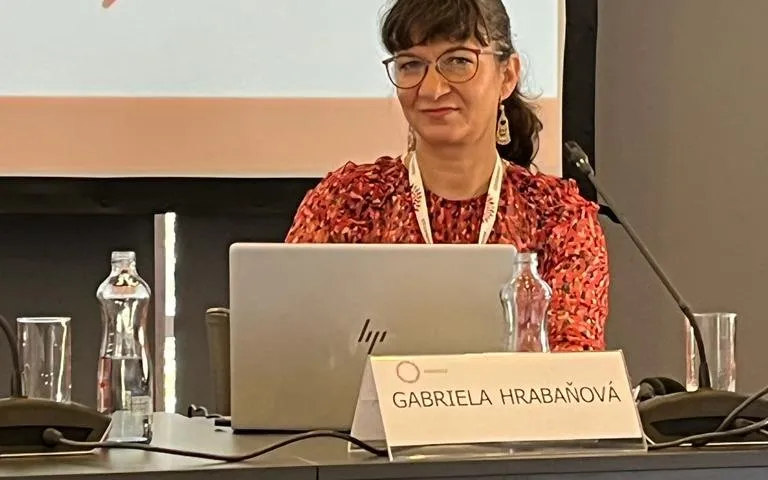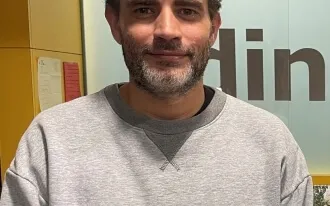Gabriela Hrabanova: "Antigypsyism persists in various forms, deeply ingrained in societal attitudes and policies"
A Deep Dive into the Origins, Challenges, and Collaborative Efforts of ERGO Network in Fostering Inclusion and Equality.
We delve into the heart of European Roma Grassroots Organizations (ERGO) Network, a beacon of advocacy and empowerment for Roma communities across Europe. Gabriela Hrabanova, Executive Director at ERGO Network, offers insights into the organization's inception, its ongoing battle against antigypsyism, and the collaborative efforts aimed at fostering inclusion and equality. With a rich history dating back to 1995, ERGO Network has evolved into a dynamic force, bridging the gap between the marginalized Roma communities' everyday struggles and the corridors of European policy-making.
How and why was your platform born?
ERGO Network is a dynamic organisation of around 30 member organisations spanning Europe (EU and non-EU countries). Our history begins in 1995 when a group of Roma activists joined to improve the socio-economic position of Roma communities in Central and Eastern Europe through an integrated community development approach.
This work was later expanded to include critical oversight in policy development concerning the everyday realities of Roma communities, and 2008 was the year of the official establishment of the ERGO Network as it is now. We now focus on active citizenship, shared responsibility, and grassroots empowerment to bring about positive change for Roma. By addressing antigypsyism as the root cause of inequality and exclusion and ensuring Roma participation in civic life, we strive for a more inclusive society.
What is your area (geographical and others) of influence?
ERGO Network member organisations are found all across Europe, including the UK, Ukraine and the Balkans. We bring together organisations and individuals to combat antigypsyism; we address Roma poverty and social exclusion and advocate for social inclusion and anti-discrimination policies on the highest European institutional level. We partner with the European Commission, the Council of Europe, the European Parliament, OSCE, and other international organisations.
What kind of work do you do on an everyday basis fighting antigypsyism in Europe? What is the actual state of this type of discrimination?
Our member organisations work directly with the Roma communities in their countries, and we help to bring their voices up to the international policy level. There is a gap between the daily Roma realities and policy-making – and our activities, in one way or another, are aimed at bridging this gap.
On the EU level, we work in two main directions. One is the Roma-specific policies, such as for example, the EU Roma Framework – making sure such policies are in place and taking into account the real problems of Roma, but also monitoring their implementation and follow-up.
The other work direction is Social Policies – we work to make sure the Roma, as one of the most vulnerable and discriminated against minority, are explicitly included in such policies, and the policies themselves are relevant for the Roma.
And beyond the European level?
Of course, we do not limit our work to the EU, but also work on a national level and outside the EU with the UK, Western Balkans and Ukraine – the Roma refugees were one of the worst affected groups by the war.
In addition, we provide networking spaces for mutual learning, build the capacity of Roma activists through Summer Academies and courses, and organise public campaigns.
All our activities have one common denominator – antigypsyism as the root cause, and it remains as pervasive as other forms of racism, engrained in the institutions, public opinion, education, environment and all areas of life.
What resistance have you found against your work?
Our Network has encountered resistance from various constituencies, including diverse administrative bodies, companies, and European institutions on national and international levels. We acknowledge that our efforts to combat antigypsyism underscore the persistent challenges we and many Roma communities face.
Considering antigypsyism is historical discrimination, what particularities of it do you find nowadays that are different or have evolved from the past?
Antigypsyism has indeed historical roots and manifested itself through past atrocities such as slavery, sterilisation, and genocide. However, it is still very present in all the realms of our contemporary life, and we can speak about manifestations of antigypsyism such as structural racism affecting the way policies are created, police brutality, and environmental racism when the whole settlements are built on or next to toxic landfills, educational segregation and many others. They also come in less visible forms, such as negative media images, stereotyping, and bullying, but there still is no such thing as an acceptable amount of racism.
These manifestations are part of societal attitudes and policies that challenge their eradication, and the concept of antigypsyism is not used and understood well enough outside the Roma movement. For this reason, we have also coordinated the establishment of the Alliance Against Antigypsyism and the online resource platform https://antigypsyism.eu/, which can help anyone interested in what it is to understand it and share this knowledge.
Do you engage in any kind of cooperation or collaboration with other organizations against discrimination, whether against Roma people or others, globally or locally?
Our Network actively collaborates with various organisations fighting discrimination both against Roma people and other marginalised groups. We are part of networks like Social Platform and European Network Against Racism (ENAR) and coalitions working on thematic issues, among them those particularly fighting antigypsyism, like the Alliance Against Antigypsyism.
We don’t limit our work to Europe, and we also cooperate with the Global Forum of Communities Discriminated on Work and Decent, which connects us to other marginalised groups in the Americas, Africa, and Asia. Overall, we strive always to keep an open eye to possible cooperation and believe that a global perspective is essential for effectively addressing the root causes of antigypsyism.







Add new comment